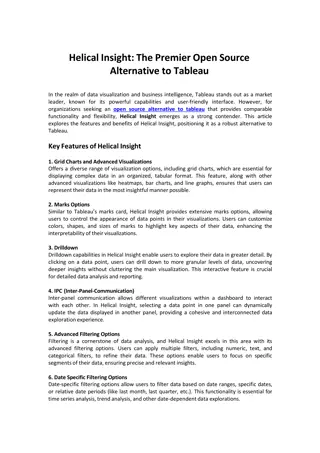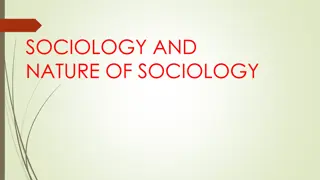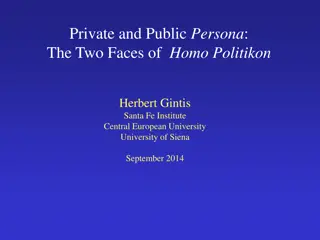Insight into Herbert Spencer's Contributions
Herbert Spencer, an English philosopher, biologist, and sociologist, made significant contributions in multiple fields such as ethics, sociology, and political theory. He introduced the concept of social evolution and organic analogy, emphasizing the interdependence of society's individuals. Spencer's works delve into the laws of social order and change, portraying society as a complex organism. His theory of evolution spans from physical to cultural aspects, reflecting a comprehensive understanding of societal development.
Uploaded on Mar 05, 2025 | 0 Views
Download Presentation

Please find below an Image/Link to download the presentation.
The content on the website is provided AS IS for your information and personal use only. It may not be sold, licensed, or shared on other websites without obtaining consent from the author.If you encounter any issues during the download, it is possible that the publisher has removed the file from their server.
You are allowed to download the files provided on this website for personal or commercial use, subject to the condition that they are used lawfully. All files are the property of their respective owners.
The content on the website is provided AS IS for your information and personal use only. It may not be sold, licensed, or shared on other websites without obtaining consent from the author.
E N D
Presentation Transcript
Herbert Spencer Dr. Syed Mehdi Abbas Zaidi Associate Professor Department of Sociology Shia PG College, Lucknow Email id: mehdi.abbas92@gmail.com Contact Number- 9839287412
Herbert Spencer (27 April 1820 - 8December1903) Herbert Spencer was an English philosopher, biologist and sociologist. He highly contributed his expertise knowledge in ethics religion, anthropology , economics, political theory, philosophy, biology, sociology and psychology. He was nominated for the Nobel Prize in Literature in 1992. person to coin the phrase survival of the fittest. His works were translated into many other languages of the world including German, Italian, Spanish, French, Russian, Japanese and Chinese. He was the first
Organicism Spencer represented societies as social organisms but he also interpreted social life as a spontaneous order . Society is akin to a special organism obeying its own laws of progress . The sociological challenge he tackled was how to conceptualise order, pattern and change in the mutually interdependent lives of social individuals as moral beings.
Organic Analogy According to Herbert Spencer, Society is not merely a collection of individuals; it is more than that; just as an organism is more than a mere collection of cells. He reformulated Organic analogy which is a staple of ancient and medieval thought. He regarded the recognition of the similarity between society and organism as the first step towards a general theory of evolution.
Social Evolution The most important contribution of Herbert Spencer to Sociology is the theory of evolution. He utilized the principles of physical and biological evolution in order to elaborate and explain his theory of Social evolution. For Spencer, evolution pervaded the inorganic as well as organic realm. His voluminous work also treated Super organic evolution (social evolution), and evolution of super organic products (cultural evolution). Within the Framework of Universal evolution, Spencer developed his basic three laws and four secondary propositions each building upon each and all upon the doctrine of evolution.
The Three Basic Laws 1. The Law of persistence of force (Some ultimate cause that transcends knowledge). 2. The Law of the indestructibility of matter. 3. The law of Continuity of motion.
Four Secondary Propositions 1. Persistence of the relationship between the forces. (Harmony of all laws) 2. Principle of formal changes and uniformity. 3. Principle of least resistance and greatest attraction. 4. Principle of gradual motion.
Important factors which Spencer Emphasized 1. The instability of the homogeneous. 2. The multi-fication of effects. 3. Segregation 4. Equilibrium 5. Dissolution.
Analysis of Evolution From the analysis of physical evolution Spencer convinced that the underlying principles of all evolution are two: i. Movement from- simple to complex. ii. Movement from homogeneous to heterogeneous. Spencer s theory of social evolution points out to two stages: I. The movement from simple to compound societies. II. Change from militant society to industrial society.
Social Darwinism Social Darwinism is simply the application of the theories of Charles Darwin to society. Evolution had become a largely accepted belief in the second Industrial Revolution; this was a continuation of those ideas outside of the scientific realm. William Graham Sumner and Herbert Spencer both promoted Social Darwinism by stating that men were either to struggle, to compete, to succeed, or to fail . Those who succeeded were fit to remain in society, and those who did not would eventually be eliminated.
Effects on Society Social Darwinism justified the actions of industrialists. They claimed that their success, actions, and wealth were all justified by nature since they were superior . Tycoons such as Rockefeller believed that they were indeed more fit to live, and that a poor man s situation was a result of his shortcomings and lack of evolutionary fitness. Even worker s unions would fail because the natural law of competition would have to survive.
Continuum Even as far back as Reconstruction it was seen in American society for reasoning as to why African Americans and poor Northerners were failing and should not be assisted. Social Darwinism expanded beyond the bounds of society and the economy though; it was also used as justification for the Imperialism of the United States. The US had become the most powerful and greatest nation in the world, and natives in countries such as the Philippines and Puerto Rico were not suited to rule themselves.
Reference Ritzer, George- Sociological Theory Turner J.H.- The Structure of Sociological Theory























